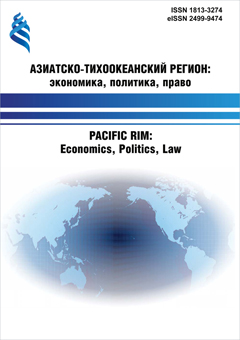THE STATE AS EVERYDAY INTERACTIONS: THE "ILLEGALITY" OF MIGRATION AND MIGRATION POLICY IN RUSSIA
DOI:
https://doi.org/10.24866/1813-3274/2023-2/56-71Keywords:
migration behavior, everyday migration policy, Krasnoyarsk region, production of "illegality", Amur regionAbstract
This article examines migration behavior and migration policy in Russia at the micro-level of social interactions. The authors follow the anthropological tradition of the conceptual demystification of the state as a coherent actor with monopoly rights to violence and social policy. The authors state that in addition to government officials, migration policies are made by "diasporas", by employees hiring foreign workers, and by intermediaries between the "law" and the "common man". The article shows that despite the contradictory and non-coherent nature of contemporary Russian migration policy, discriminatory practices are "successfully" pursued and internalized by both those who implement it and those who are governed. Moreover, it is not only government officials who discipline the "good" migrant. Business is also directly involved, although the basis for disciplinary practices is on a different, market-based level. Intermediaries and representatives of "diasporas" are also embedded in the violence machine, shaping the image of the "good" nation. Finally, migrants themselves do not simply accept the rules of the game but internalize the idea of both the "good" worker and the "good" member of the "nation," implementing discriminatory practices in their everyday interactions. The authors use Foucondian discourse analysis to investigate linguistic practices; the empirical base consists of expert and biographical interviews (2014-2016, Amur and Krasnoyarsk regions). The main text of the article consists of a description of the methods and data, the conceptual framework of the research and three sections with a sequential presentation of the results.



